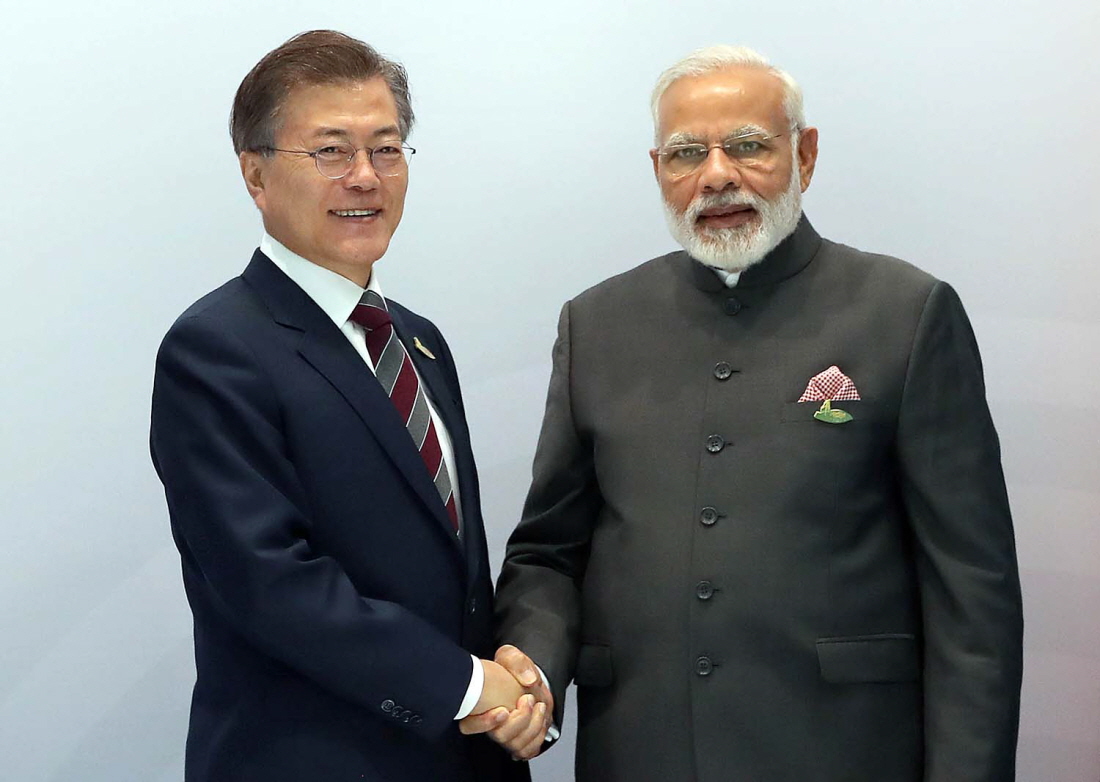이 웹사이트는 제19대 대통령 임기 종료에 따라 대통령기록관이 「대통령기록물 관리에 관한 법률」에 의해 이관받아 서비스하는 대통령기록물입니다. 자료의 열람만 가능하며 수정 · 추가 · 삭제는 불가능합니다.
다만, 「개인정보보호법」에 의하여 개인의 정보를 보호받기 원하시는 분은 관련 내용(요청자, 요청내용, 연락처, 글위치)을 대통령 웹기록물 담당자(044-211-2253)에게 요청해 주시면 신속히 검토하여 조치해 드리겠습니다. 감사합니다.
MEDIA

By Yoon Sojung
President Moon Jae-in will pay state visits to India and Singapore from July 8 to 13.
While visiting the two key allies in Seoul’s New Southern Policy, President Moon will hold summit meetings to discuss cooperation, and ask for support for the establishment of peace and denuclearization on the Korean Peninsula.
"India now plays an active role in the international community after ending its long-term non-aligned policy, and Singapore is the current chair of ASEAN this year,” said Second Deputy Chief of the Presidential National Security Office Nam Gwan-pyo during a media briefing at the Chunchugwan Press Center at Cheong Wa Dae on July 5.
“We hope the upcoming presidential visit will offer an opportunity for both countries to actively support and work with the Korean government, which aims to achieve peace and prosperity on the Korean Peninsula,” he said.
Kim Hyun-chul, presidential secretary for the economy, also said in the briefing that, “Both India and Singapore are key partners in the New Southern Policy, one of key initiatives of the Moon Jae-in administration.”
“The upcoming presidential visit will provide a chance for Seoul to carry out its New Southern Policy in full swing, and also further accelerate the initiative,” said the presidential secretary.
“President Moon aims to form a foundation so that Korea and India can further develop the special strategic partnership in a future-looking manner,” said Kim.
Regarding the presidential trip to Singapore, presidential secretary Kim said, “Korea will work with Singapore in order to produce growth engines for future economic growth and jointly respond to the fourth industrial revolution.”
“We will also work with Singapore to present future directions for the development of the Korea-ASEAN relationship, and develop exemplary cases of cooperation together,” he added.
***



